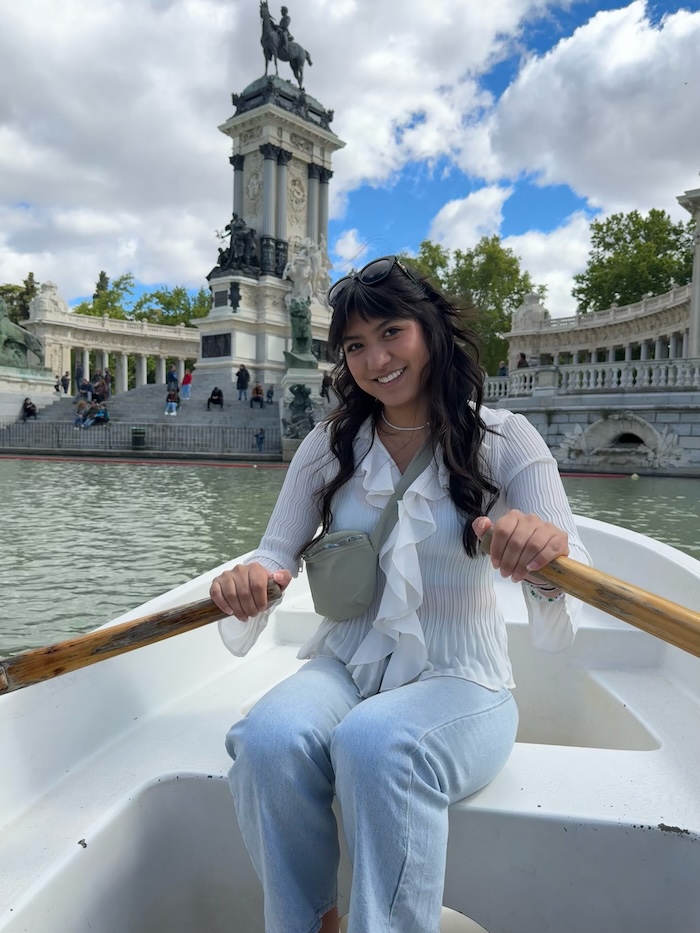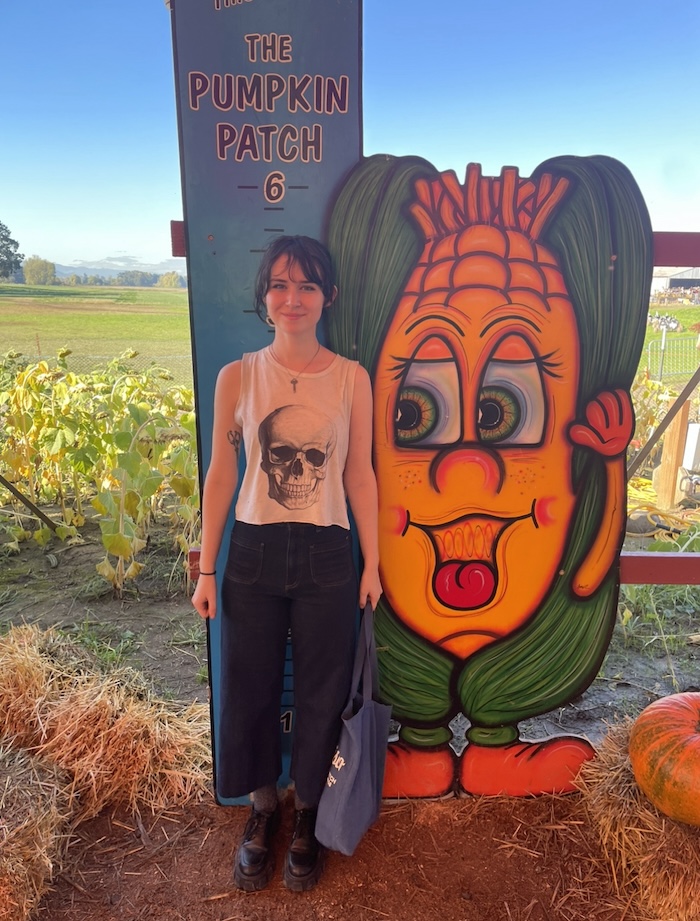
While this group originally set out to better understand how polarization operates, after the 2024 presidential election, they shifted to explore misinformation, propaganda, and how these things contribute to polarized environments. After digging into scholarly research on the topic, the group designed a survey to capture how the University of Portland community recognized and interacts with propaganda. They then created a toolkit to help people combat propaganda and cultivate mindful practices in media consumption.
Check out the toolkit here and read more about their project on their website.


Sruthi is an Assistant Professor of Philosophy at the University of Portland and has taught a variety of courses including philosophy of mind and social epistemology. She completed her undergraduate degree, BA, at the University of Portland and earned her PhD from the University of Nebraska-Lincoln. Her research focuses on the application of epistemological theories to different aspects of our personal and social lives. For example, can theories about self-knowledge help us better understand types of mental illness? What do theories of knowledge and rationality tell us about the value of unjustified positive illusions about ourselves? What should we do when we encounter disagreement, particularly when those with whom we disagree are epistemic peers? Recent publications include "A Modified Self-Knowledge Model of Thought Insertion" in the Review of Philosophy and Psychology and "Defeaters to Best Interest Reasoning in Genetic Enhancement" in Philosophical Studies.

Year: Senior
Major/minor: Political Science and Global Affairs, Philosophy, and Spanish
Hometown: Phoenix, AZ
Why PRF: Throughout my time at UP, I have gained valuable research experience which I have thoroughly enjoyed. However, I am eager to further strengthen my research skills and make a meaningful impact on the projects I contribute to. I am excited to collaborate with fellow students and faculty, learning from their research experiences. What particularly interests me about the question of whether polarizing beliefs can be justified is the balance between the importance of civic discourse and the role of education, ethics, and morality. My goals for this year's project are to learn as much as possible, embrace the journey, and enjoy these final milestones of my undergraduate career while researching a topic that I believe affects everyone in our communities.

Year: Junior
Major/minor: Psychology and Philosophy
Hometown: Athens, GA
Why PRF: I'm interested in working with PRF because I think community engagement is a responsibility of universities and I'm excited to facilitate this through the engaged humanities. I think questions of democracy, polarized beliefs, and community connections have become especially important in recent years and I'm looking forward to connect with my peers and university faculty while advancing these conversations.